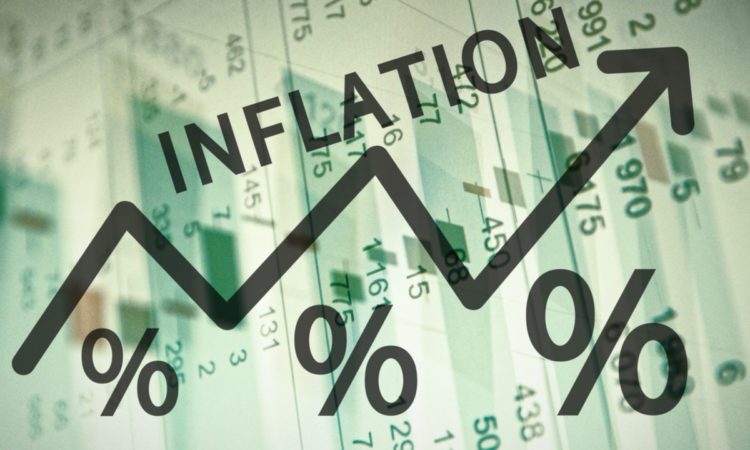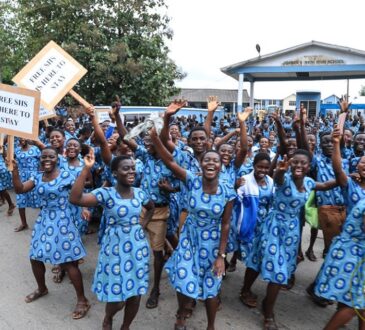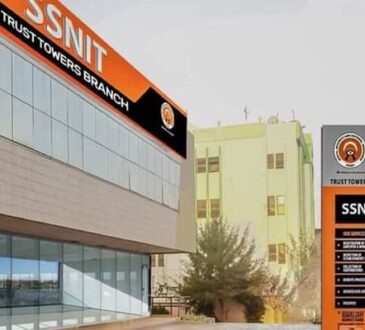
By Bright Simons
As I write this, members of the Bank of Ghana’s Monetary Policy Committee (MPC) are huddled together poring over the dire numbers of Ghana’s ongoing economic tragedy.
Five of the seven members of the committee are basically just senior executives of the Bank of Ghana: the Governor, his two deputies, and two key management lieutenants. The other two are appointed by the BoG’s government-dominated Board. Essentially the same people who have been running the day to day and two friendly economists favoured by the ruling government are having an “emergency meeting” on matters already in their purview, hardly the stuff of disruption.
But there is a quality of the surreal about this whole panic. Ordinarily, the Governor of the Bank of Ghana (BoG) and his MPC deserve our sympathy. Even though we analysts frequently criticise the MPC for its continued refusal to publish minutes of its meetings and disclose the exact positions of members. And though we cannot easily forgive its failure to make public the actual forecasting and evaluatory models it relies on to guide its rate-setting, we always cut it some slack.
We are moderate in our expectation of the BoG’s success in maintaining inflation between its 6% to 10% target band (with a preferred median of 8%) because we agree with the economists who attribute the country’s inflationary and exchange rate problems to something called, “fiscal dominance”.
Fiscal dominance crudely means that whenever the government is hard up it is unable to rely on increasing tax revenue. It then resorts to measures that forces the monetary authorities (eg. the central bank) to give up on its targets and strictures.
Historically, high government debt in a context of low capacity to increase tax revenue quickly, as is the case in Ghana, has been associated with increased money printing (some of which is then lent to the government by the central bank), financial repression, and various ways of gaming the government securities markets (such as the recent revelations of sweetheart repo deals by the BoG to incentivise some banks to hold on to government securities).
In the current circumstances of fiscal dominance and attempts at financial repression in Ghana, it is not surprising at all if inflation hits 32% instead of the central bank’s targeted 8%. The tools available to the BoG are being used to favour inflation rather than to bring it down because of the central bank’s weak operational independence. Because the government has also chosen at this time to infuse sentiment-dampeners, like the poorly designed e-Levy, into the economy at this sensitive moment, a true “stagflation spiral” has been triggered, throwing all crisis management out of gear. Raising rates will crush ground growth further, but doing nothing will make the inflation hawks scent blood. What a bind!
Where we cannot so easily pardon the BoG is its seeming enthusiasm to reinforce wrongheaded government narratives that are all about PR signaling and very little about reality. By applying a veneer of “technocratic credibility” on the government’s strategy of sheer spin over substance, it has become an enabler of the continued postponement of hard decisions in the hopes of a miracle. Our main charge-sheet is the latest BoG release urging calm because it is at work steadying the Cedi.
Let us tackle each of the seven remedies it claims it is applying to the Cedi’s woes.
• Gold Purchase Program to increase foreign exchange reserves.
So far all we have is an opaque program in which the government has without any merit-based competition selected a so-called “gold aggregator” from which it intends to buy crude gold, have it refined and stored as a reserve asset. No information as to which company exactly this is, what price indexing formula exactly is at play or the volume commitments.
It is important to emphasise that the BoG does not intend to back any portion of the Cedi supply with gold. This is not a partial replay of the gold standard. So, effectively, it will simply seek to convert printed Cedis for gold. This will hedge the BoG’s own holdings against Cedi inflation but it does nothing to actually address demand for forex or the market’s jitteriness about holding Cedis. In fact, gold producers will seek a counter-hedge against the Cedis they are provided, limiting the exchange volumes involved, seizing up liquidity over the long haul, and bringing everything back to square one.
Unless, the BoG intends to become a major active speculative trader in gold to build its dollar reserves, there is virtually no significance to this policy at all as far as the Cedi’s stability is concerned. Zimbabwe recently abandoned this same bullion-reserves approach, despite at one point hoarding the world’s second largest stash of gold reserves, to focus on getting its citizens to shift from forex to gold coins as a store of value, a somewhat less fraught but equally dubious proposition. Whilst there are channels through which such a policy can impact positively on small-scale mining as a separate objective, research suggests considerable obstacles.
• Special Foreign Exchange Auction for the Bulk Distribution Company’s (BDCs) to help with the importation of petroleum products.
Our inquiries in the downstream fuel market indicate that the BoG has been steadily reducing its supply of forex to the BDCs. Some respondents report a sharp decline from about 30% of forex demand being met in the official BoG window in May of this year to roughly 10% today. It is totally disingenuous for the BoG to create the impression that it is meeting the demand of the BDCs.
• Bank of Ghana gold buying cooperation agreement with mining companies.
It is not clear how this should differ in effect from the shady/opaque “gold aggregator” approach to bolstering bullion reserves discussed above.
• The Bank of Ghana forex liquidity support to commercial banks
Here also, as with the BDCs, our inquiries in the industry point to massive undersupply.
• USD750,000,000 Afrieximbank Loan Facility
As previously explained, Ghana has not really entered into a loan agreement with Afreximbank. Unless the government signed a secret agreement and only sent the term-sheet to Parliament for approval (a patent illegality), the only documents that were placed before the full Parliament were term sheets opening the door for the negotiation of substantive loan agreements.
There are major factors acting against the swift injection of Afreximbank funds, for which reason it ought not to be treated as an emergency support facility but a complementary bolster for another, true, emergency liquidity injection scenario.
I. A final agreement needs to be completed and approved by the Board of Afreximbank. This usually takes time.
II. The Ukraine Crisis Adjustment Trade Financing Program (UKAFPA), which is the specific Afreximbank program Ghana aims to draw on, was designed to fund simple purchases of commodities meant to be resold so that Afreximbank can get its money back relatively quickly. It is primarily an export and tourism stimulant facility. It was not originally intended for balance of payments support in the traditional way. The UKAFPA is still in fund raising mode and as at last checks was yet to appoint a Fund Manager. Ghana’s request for $750 million for road projects are somewhat misaligned with the program’s objectives and as such may require further work to secure all the necessary approvals and ensure successful matchmaking with ultimate lenders.
III. The UKAFPA is currently oversubscribed, with African countries having requested $16 billion from a total package of $4 billion. Ghana is thus in stiff competition for disbursements.
IV. By choosing to use roads as the basis for borrowing, Ghana has guaranteed longer due diligence intervals between disbursements. Each disbursement will require ESG sign-off, which tends to be more onerous for physical infrastructure compared to traditional trade finance. The erroneous impression that all the $750 million will come at once amounts to an unnecessary inflation of hopes. It should normally take years to disburse road project funds. Even if fast-tracked, it is hard to see how the entire $750 million can be disbursed within three months. Meanwhile, Ghana literally needs money tomorrow, and in much larger quantities than $750 million.
• The Syndicated Cocoa Loan Facility
It is historically true that the annual syndicated cocoa loan facility has been a major booster for the Ghana Cedi in its usual cycles of lows and not-so-lows. This time however there are formidable obstacles. Ghana’s cocoa crop continues to fail due to disease and poor supplies of subsidised inputs farmers have come to depend upon. Liquidity challenges have led to many of the country’s licensed buyers struggling to deliver the right quantities on time for export. Ghanaian deliveries have become unreliable in the international market leading to some frustrated contracts. All these factors are constraining disbursements even from the existing receivables-backed facility. At any rate, it would be many months before Ghana can expect any forex influx from the new facility.
• IMF Programme
As everyone now agrees, Ghana’s current fiscal challenges are worse than they were in 2014 when Ghana applied for its last IMF facility (the 2020 general disbursement was not a real programme). Even so, it took 8 months for the country to jump through all the necessary hoops to close a programme. Considering that Ghana is yet to even submit its Letter of Intent, much less complete an updated debt sustainability analysis, and agree on the shape of a program, there is really no way for an IMF program to commence in less than three months. Even if a substantial amount of the money is frontloaded, IMF programmes are milestone-driven. Worse, Ghana is focused on PR signalling and spin rather than doing the substantive work. For example, it has failed to explain why it believes it deserves double ($3 billion) of what its quota should entitle it to and why increasing the amount it intends to obtain at one go should do anything to speed things up. That is of course not to say that $3 billion is an unrealistic ask, but to emphasise that the more IMF funds are at risk, the stricter the scrutiny of the IMF Board.
In short, none of the measures the BoG is trumpeting can address the Cedi’s serious woes in the short-term, which is to say within the next three months, which most analysts believe is the crucial horizon. When a currency loses roughly half its value within a couple of months, prudence will call for real emergency provisions, not spin. Yet, so far, the government has not disclosed a credible short-term remedial strategy. Thus the posturing of the BoG as if there is indeed a short-term response underway is both delusional and dangerous.
As a matter of urgency, the government needs to explore a truly short-term forex commercial loan that is NOT project-tied and one which could be disbursed within the next three months. It should rework the Afreximbank facility as well as the one with the three commercial banks to ensure that they are consistent with an emergency funding scenario.
Above all, the government should stop the PR signalling and take substantive decisions on true cuts to discretionary spending since no short-term forex facility at this point will be of a decent enough size to make a real dent in the $4 billion forex shortfall facing the country. This means an independent spending review by a credible team of external auditors. It also means selective defaults on government obligations tied to programs delivering low or no value such as the various Kelni GVG related contracts, the wasteful IT projects at the Electoral Commission and the discredited flagship program expenditures related to IPEP, 1V1D, and the various so-called “special initiatives” at the Presidency.
It betrays a serious lack of sincerity and seriousness about addressing the ongoing crisis when the only spending areas the government can conclusively point to for cuts are travel and meetings. Areas barely amounting to $15 million even assuming 100% successful execution of claimed cuts.
In fact, the total spending adjustments in the government’s mid-year budget amount to just about $220 million on net when the nation is confronted with a $5 billion fiscal hole.
If the Bank of Ghana is unable to join the rest of us to ramp up the pressure on government to take the crisis seriously and embark on credible short-term remedial strategies, it can at least do all of us a favour and just stop bloviating. Ghana is past that stage.
Credit: brightsimons.com







